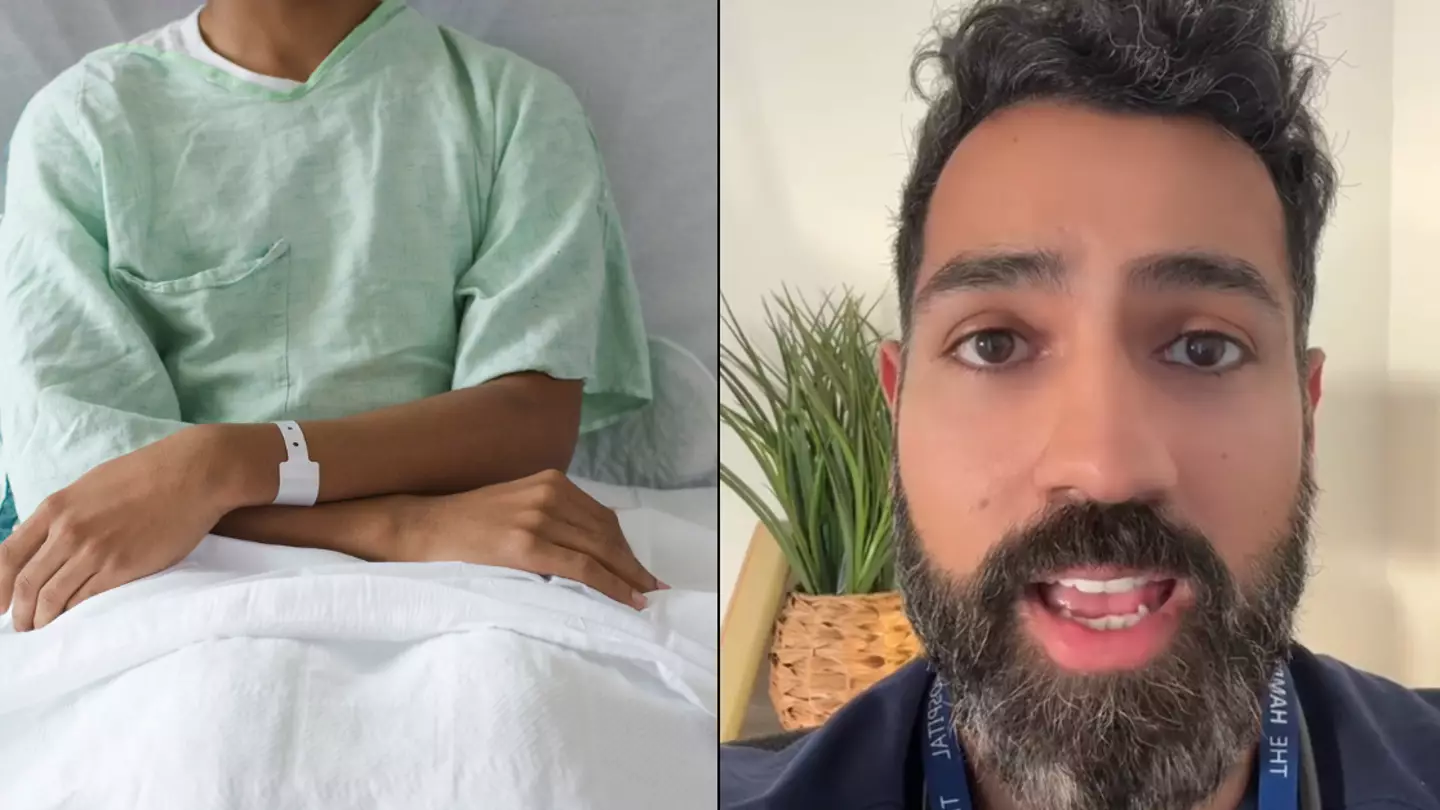
While Cancer Research UK points out in its statistics that Hodgkin lymphoma is not among the 20 most common cancers, incidence rates are projected to rise by 13 percent between 2023 – 2025 and 2038 – 2040.
It can develop at any age but it mostly affects people between 20 and 40 years of age and those over 75, with a 2022 study noting that its increase has been especially noticed in the younger population – though it further states that the reason is still unknown.
The cancer develops in the lymphatic system which is part of your immune system and is a network of vessels and glands spread throughout your body – with one sign sometimes appearing when you drink alcohol.
.jpg)
It’s commonly spotted in the neck, armpits and groin. (Getty Stock)
“So, in Hodgkin lymphoma, a certain type of cell called B lymphocyte grow in number abnormally,” he explains. “They cluster together in certain parts of your body, most often your armpits, neck and groin.”
And so, Dr A says the ‘most common symptom’ is therefore a lymph node ‘that’s inflamed and enlarged that won’t go away again’.
He points out that you want to keep an eye out for these lumps particularly in your neck, armpits or groin.
“If you’ve got one of these or a lymph node that’s not going away after four to six weeks, you must get it checked out,” the doctor adds.
He also includes other symptoms such as ‘a persistent fever, persistent cough or breathlessness, a high temperature and weight loss’.
While diagnosis ‘can be quite quick’ the NHS explain the only way to do so is by carrying out a biopsy.

Hodgkin lymphoma typically spreads quickly. (Getty Stock)
This is a minor surgical procedure where they will remove a sample of affected lymph node tissue to be studied in a lab.
Dr A advises that the cause of Hodgkin lymphoma isn’t exactly known, but there are risk factors including: “If you’ve got a weakened immune system, if you’ve previously had glandular fever, have a family history.”
The NHS also adds that your risk of developing it is increased if you take immunosuppressant medicine.
“Treatment can involve radiotherapy and chemotherapy and prognosis is fantastic,” Ahmed says.
And while it is a ‘relatively aggressive cancer’ and can spread through the body quickly, it is one of the most easily treated types of cancer.
Overall, around eight out of 10 patients live at least five years and most of them will be cured.
The doctor adds this ‘is why it’s important you get diagnosed early and see a doctor if you have any risk factors or symptoms’.


